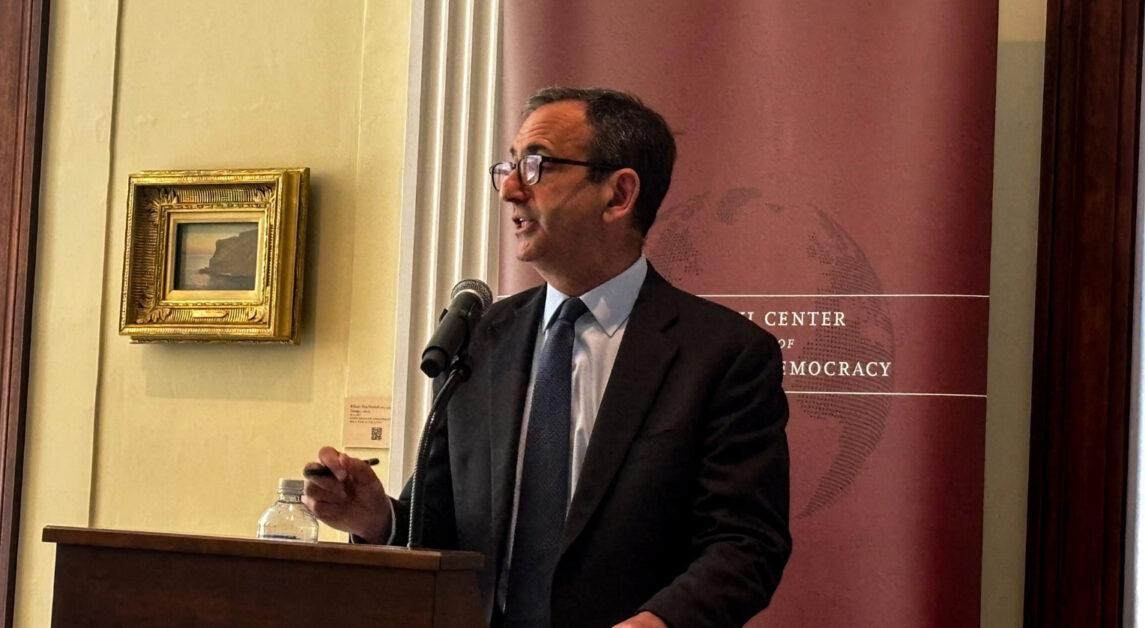It seems strange to imagine a United States where democracy is no longer its rallying cry—a United States where protests against taxation without representation are confined to the history books rather than reenacted in the streets and universities.
But according to Philip Gordon, the United States might already be there.
“Since 2019, we’ve had a majority of people in the United States, at least, saying they are dissatisfied with democracy,” Gordon said.
Gordon, former national security advisor to the vice president, visited the Heights on Saturday for the Clough Center for the Study of Constitutional Democracy’s Spring Symposium.
He served in former President Joe Biden’s administration from March 21, 2022, until the inauguration of President Donald Trump on January 20, 2025.
During the Obama administration, Gordon served as assistant secretary of state for European and Eurasian affairs and special assistant to the president and White House coordinator for the Middle East, North Africa, and the Persian Gulf Region.
While serving in the White House and in the time since he left office, Gordon said he observed that democracy’s reputation has been on the decline.
“And that conclusion, which seemed so obvious [in 1989], that liberal democracy was clearly superior to any of the alternatives is certainly not the view of new people around the world,” Gordon said.
According to Gordon, this shift has led to a worldwide decrease in the number of democracies.
“It has now been 18 straight years where more countries are losing freedom rather than gaining freedom,” Gordon said. “The previous years you had more and more gaining [freedom].”
Although democracy remains intact in the United States, Gordon emphasized that it is not on an upward trajectory.
“The candidate who refused to accept the results of the 2020 election, even supporting violence to overthrow the result of those elections and now went back in power, accelerating attacks on the judiciary, on the press, on opposition figures, firing inspector generals … put all of this together and it’s very similar to these anti-democratic countries across the board,” Gordon said.
Gordon compared America’s democratic decline to the situation in Europe during the 1930s.
“When you have the public getting really fed up with their leadership, with their elites, with the economic performance of their democracies, with the inequalities that arose from open trade, with resentment about cultural change in migration—that’s the analysis of what happened in the ’30s when democracy declined,” Gordon said. “And it’s not too dissimilar from what we’re seeing today.”
Despite the current trajectory of American democracy, Gordon emphasized that there is still hope.
“Some of the anti-democratic trends that I’ve talked about balance with other rallies around the country in favor of democracy, including in Colorado just yesterday with like 35,000 people with Senator Sanders and Representative Ocasio-Cortez showing real urgency for people who don’t want to give up on Democracy, ” Gordon said.
All it takes to save democracy, according to Gordon, is a populace willing to fight for it.
“People can accept the trend and just drop their shoulders—conclude there’s nothing that can be done about it—or they can continue to engage and demand rights and defend the rule of law,” Gordon said. “Doing so will require patience and persistence and unity and leadership, but all of those are possible and in the hands of people around the world who care about the future of democracy.”








